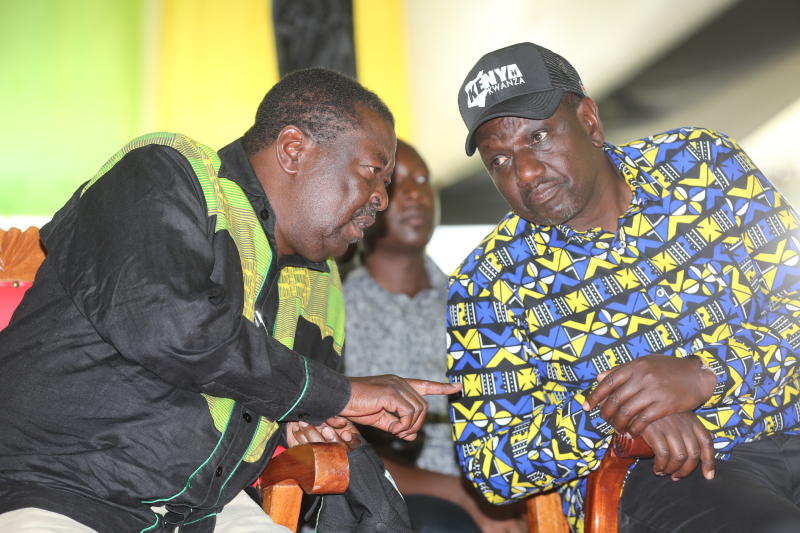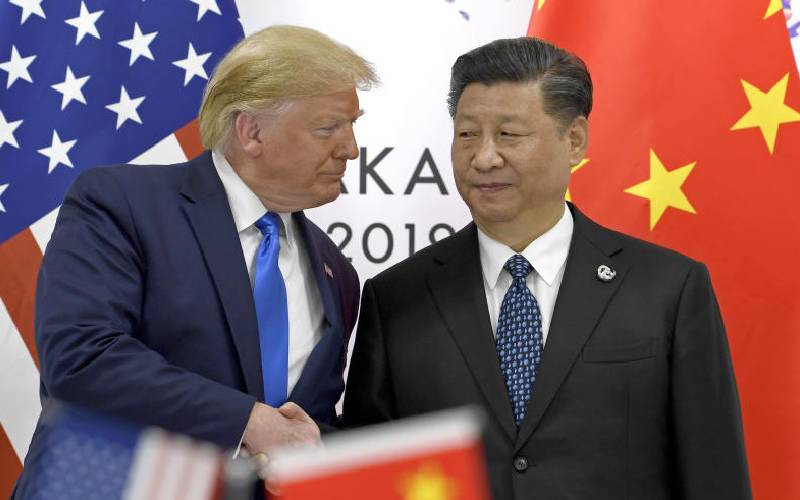Kenya Kwanza Alliance: Deputy President William Ruto speaks with ANC party leader Musalia Mudavadi at Nyang'ori PAG headquarters in Vihiga County on April 21, 2022. [Benjamin Sakwa, Standard]
×
The Standard e-Paper
Fearless, Trusted News







